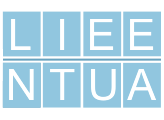The aim of the project is to carry out targeted studies around the digital agenda of the EU institutions, with a particular focus on SMEs and the skills of citizens and workers. The areas of artificial intelligence, internet of things, big data, industry 4.0 and the impact on current and future employment are already affecting business and economic activities across Europe. These challenges require coordination of national and international policies. The thematic studies aim to create a platform for the exchange of ideas and actions that will highlight the main driving forces and obstacles that need to be addressed.
PromethEUs is an independent research network consisting of four think tanks from Southern European countries, active both in their own countries and at European Union level, specializing in the fields of economic, business, and geopolitical research. Specifically, it consists of the following think tanks: I–Com –Inst
The mission of the PromethEUs network is to contribute constructively to the current European policy debate on the digital revolution, offering a perspective from Southern Europe. PromethEUs aims to participate in the debate on the digital agenda of the EU institutions, with a particular focus on SMEs and the skills of citizens and workers. The fields of AI, IoT, the use of Big Data, elements of Industry 4.0, and their impact on current and future employment are already affecting business and economic activities across Europe.
The main goal of the TwInn4MicroUp project is to significantly and measurably increase the competitiveness and the capabilities of NTUA in the fields of Project Management & Administration, Budget Acquisition, and Synthetic Microbial Biotechnology for the elevation of NTUA’s research profile. This will be achieved by transferring research knowledge, excellence and best practices, from the three high-performance research establishments: Technological University of the Shannon: Midlands & Midwest (TUS), Athlone, Ireland; Belgrade, Serbia; The Microbial Biotechnology Laboratory of the Department of Bioscience, Biotechnology and Environment (UNIBA), Bari, Italy.
TwInn4MicroUp will generate 4 new state-of-the-art clean technology innovations that will lead to sustainable jobs, encompassing essential skills for the transition towards a greener future. Leveraging previous research achievements to valorise by-products of plastic waste and demonstrating the scale-up of these processes will highlight the untapped potential within low-value co-products and underscore the importance of pilot-scale research alongside laboratory developments. TwInn4MicroUp aims to educate and train researchers in Synthetic Microbial Biotechnology while fostering innovation through the formation of an expert network including the stimulation of relevant policy discussions. Our strategy involves engaging with the industry (over 100 companies), facilitating their active participation and investment, and working together to create a roadmap towards a greener, more innovative, and sustainable future. Through these collaborative efforts, NTUA aims to compete successfully at the EU level carrying out project coordination roles in HE initiatives.
LIEE-NTUA will support the creation of a Hub in the field of synthetic microbial biotechnology and will support the process of potential exploitation in the market of research ideas and results in order to link the rich production of innovative products in NTUA with existing or new firms in the specific sector.
The AI-THOS project aims to facilitate systematic and extensive training on Ethics and Research Integrity with a particular emphasis on the use of Artificial Intelligence technologies. The goal is to promote the principles of Ethics and Research Integrity, engage participants and their social networks in dialogue about the importance of these principles in scientific practices, and ultimately cultivate a culture of Ethics and Research Integrity in Europe. This culture will mitigate ethical implications and enhance trust in science and technology.
To achieve this goal, the project’s specific objectives are:
- Investigate successful educational practices and innovative teaching techniques by mapping existing educational practices on Ethics and Research Integrity.
- Strengthen the confidence and capacity of educators/trainers in Higher Education Institutions to provide training on these topics.
- Support the development of related competencies among students by implementing a pilot program in the participating Higher Education Institutions.
The aim of the project is the design, creation and operation of an integrated network of structures to highlight and support Entrepreneurship and Innovation in the Region of Peloponnese.
Specifically, LIEE will undertake the implementation of three (3) studies: a) “Entrepreneurship governance model study”, b) “Study of Research Utilization Practices (VALORISATION – SPIN OFFS)” and c) “Support Mechanism Operation Evaluation Study”, while also LIEE will operate an Integrated Information System.
Also, LIEE will have the scientific support for all the Phases of the Project and particularly in the staffing of the Evaluation Committees of the innovation competitions and hackathons, in the process of diagnosing the needs of business schemes, as well as the selection of the thematic content of the actions.
 The project aims to optimise freshwater consumption in the food and beverage industry by introducing AI-based monitoring and control technologies, as well as water recovery and reuse technologies. At the same time, the project aims to achieve sustainability through energy recovery and waste management technologies, developing value-added products. In the framework of the project, LIEE contributes to the development of the strategy for the exploitation and commercialisation of the technological developments, project results and developed products, leading to the rapid adoption of the developed solutions by other companies active in the food and beverage industry.
The project aims to optimise freshwater consumption in the food and beverage industry by introducing AI-based monitoring and control technologies, as well as water recovery and reuse technologies. At the same time, the project aims to achieve sustainability through energy recovery and waste management technologies, developing value-added products. In the framework of the project, LIEE contributes to the development of the strategy for the exploitation and commercialisation of the technological developments, project results and developed products, leading to the rapid adoption of the developed solutions by other companies active in the food and beverage industry.
More information about the project here.
